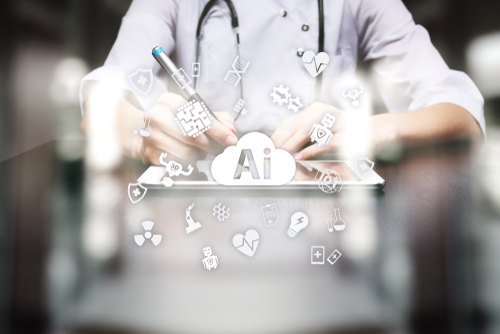There isn’t any question that artificial intelligence is a transformative technology that will continue to completely change the way every human being operates in the modern world. One of the major industries where artificial intelligence has influence in healthcare. You can debate on how and where you want your healthcare delivered, but artificial intelligence will make healthcare much more efficient and accessible for us all.
In fact, artificial intelligence may be able to find congenital heart defects in children before they are born. Just think of all the lives that can be saved using this exact technology.
As a result, a child’s odds of survival can improve. What makes this even more noteworthy, is the CDC reports that congenital heart disease is one of the most common forms of birth defects. As you can see, artificial intelligence can certainly improve the odds for many babies whose lives are on the line.
Enhancing healthcare marketing
After a patient is diagnosed, the next step is to match patients with the right therapies. Of course, there are many forms of therapies to choose from and consumers are inundated with marketing messages from drug companies and others. So, you can expect consumers do ask their physicians about this or that drug that they learned about via a commercial. Nonetheless, the pharmaceutical companies are running businesses for profit.
And, much of the messaging does not take into consideration the needs of the actual patient. Yet, with artificial intelligence, data can be drawn and aggregated for use in pulling relevant analytics. In addition, datasets can be pulled from lab results and hospital records. Those results can be matched with Internet usage and demographics.
Now, marketers can really put all the pieces together to create highly relevant messaging. Furthermore, the patient can make better decisions on treatment options as they are served only the most tailored marketing messages.
IBM is leading the way with AI in healthcare
At the annual J.P. Morgan Healthcare Conference, IBM Watson Health general manager Deborah DiSanzo spoke about the various areas where AI is disrupting the healthcare industry as many know it. One of the more interesting advancements is in drug discovery. Before AI, it took pharmaceutical companies an average of one decade to launch a new drug. Moreover, the most experimental drugs are often left off the shelves.
Yet, IBM Watson worked with the Barrow Neurological Institute to rank around 1,500 proteins for their association with Lou Gehrig’s disease, or amyotrophic lateral sclerosis (ALS). The results showed that five of the proteins found had never been associated with the disease before. There is just so much data to process, humans can’t keep up. So, with AI, better drugs can be introduced to the market even quicker.
Smarter than your doctor
Would you ever consider seeing a virtual doctor? There are already apps in place that let you communicate with doctors using a smartphone. Yet, what if you could see your doctor come to life, powered by AI and hologram technology? Then, you no longer have to go to the doctor’s office, you can be treated or diagnosed in the comfort of your home.
Currently, AI can read Imagen radiology scans and monitor the spread of cancer. Furthermore, Google’s DeepMind AI can offer a blood test without using any blood to determine dangerous levels of potassium in the bloodstream.
AI can even predict disease. Right now, the healthcare industry is dealing with practitioner burnout and shortages of healthcare employees from doctors to nurses. Perhaps AI can fill in the gap.
Final thoughts
Picture doctors and nurses appearing in hologram form offering diagnoses and management. Then, imagine robots performing surgeries and/or administering medication in your home. This is all quite possible through AI. It looks like the future really is bright for the healthcare industry.









